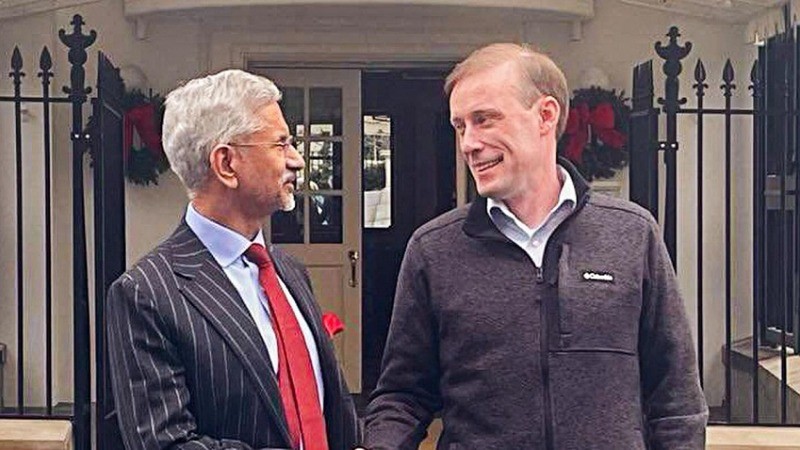
WASHINGTON: US National Security Advisor Jake Sullivan is visiting India on January 5-6 for crucial discussions with Indian officials, focusing on bilateral, regional, and global issues. His visit underscores the deepening strategic partnership between the two nations amidst growing regional challenges, including concerns over Chinese dams and their environmental impact.
During his visit, Sullivan is set to meet his Indian counterpart, Ajit Doval, and External Affairs Minister S. Jaishankar. This meeting comes after their discussions in Washington last month, marking the final high-profile engagement between India and the current US administration.
A key highlight of Sullivan's itinerary is his address at the Indian Institute of Technology (IIT) in New Delhi. In his speech, he is expected to emphasize the bipartisan support for the US-India partnership and its centrality to regional and global priorities.
What's on Agenda?
Focus on Chinese Dams - One of the primary topics on the agenda is the impact of Chinese hydropower projects, including the construction of a massive dam on the Yarlung Zangbo River in Tibet, which flows into India as the Brahmaputra. India has raised concerns about the potential environmental and water supply repercussions for downstream regions and urged China to consider the interests of affected countries.
A senior US official highlighted the broader implications of China's upstream dams, stating they could have significant environmental and climate-related consequences for downstream nations.
Advancing Technology and Defense Cooperation
Sullivan’s visit will also review the progress of the India-US technology initiative launched in 2022. This initiative fosters collaboration in semiconductor production, artificial intelligence, and space exploration. It was pivotal in securing a deal between General Electric and Hindustan Aeronautics Limited for the joint production of jet engines in India.
Discussions are expected to extend to civilian nuclear cooperation, military licensing, and addressing economic challenges posed by Chinese overcapacity.
Strengthening Strategic Partnerships
The visit reaffirms the US-India alliance as a counterbalance to China's growing influence in the Indo-Pacific region. Both nations have intensified their engagement to address shared concerns, with US President Joe Biden hosting Indian Prime Minister Narendra Modi at a state dinner last year.
However, challenges remain, including strained relations over allegations of misconduct involving officials and diaspora-related issues. Despite these hurdles, Sullivan's visit demonstrates a commitment to strengthening the US-India partnership.